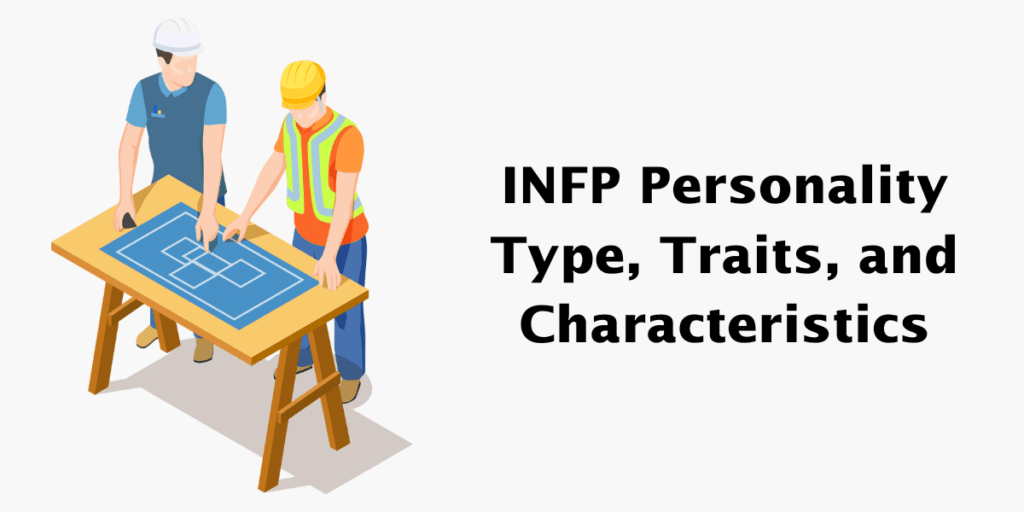
Contents
INFP Description
INFPs are characterized by their introspection, creativity, and idealism. Their primary function is Introverted Feeling where they comprehend what is important to them. Additionally, Extraverted Intuition serves as an auxiliary function wherein they observe multiple paths towards reaching a conclusion or outcome. Consequently, INFPs have the rare gift of being able to recognize various possibilities while passionately searching for meaning in life – almost every experience that comes their way contributes to this internal value system of theirs which allows them to discern between needed and superfluous (Butt “INFP”).
INFP Traits
- Strong value systems
- Warmly interested in people
- Service-oriented, usually putting the needs of others above their own
- Loyal and devoted to people and causes
- Future-oriented
- Growth-oriented; always want to be growing in a positive direction
- Creative and inspirational
- Flexible and laid-back, unless a ruling principle is violated
- Sensitive and complex
- Dislike dealing with details and routine work
- Original and individualistic – “out of the mainstream”
- Excellent written communication skills
- Prefer to work alone, and may have problems working on teams
- Value deep and authentic relationships
- Want to be seen and appreciated for who they are
INFP Strengths & Weakness
INFPs are driven by the desire to make a difference in the world and bring improvement wherever they can. They’re known for being good listeners, amiable people who lend an ear when needed, and flexible souls who won’t let their values be compromised without putting up a fight! INFPs appreciate learning settings where they have room to express themselves creatively; these environments help them thrive intellectually.
Strengths
Loyal and devoted
Sensitive to feelings
Caring and interested in others
Works well alone
Value close relationships
Good at seeing “the big picture”
Weakness
Can be overly idealistic
Tends to take everything personally
Difficult to get to know
Sometimes loses sight of the little things
Overlooks details
INFP Career Paths
INFPs commonly thrive in the realms of creativity and artistry, as well as spirituality. Though they may be proficient with language, these individuals often favor writing to convey their ideas or emotions rather than engaging in verbal communication.
- Artist
- Architect
- Counselor
- Editor
- Human Resources
- Psychologist
- Researcher
- Writer
- Teacher / Professor
- Musician
- Religious Worker

Dealing With INFP's
Friendships: People with an INFP personality tenaciously cultivate a few meaningful relationships throughout their life, as they are skilled at recognizing and empathizing with the emotions of others. Unfortunately, these individuals find it difficult to communicate their own feelings freely – often feeling overwhelmed when attempting to do so.
Parenting: The primary focus of an INFP parent is to foster the development of their children as individuals and promote appreciation for the beauty in life. However, they may find it difficult expressing emotion with their kids which can lead them to prioritize creating a balanced atmosphere within the household instead.
Relationships: INFPs may have a tendency to romanticize connections, which can lead to unreachable expectations that their partners find difficult to meet. Additionally, they frequently take comments personally and are eager not to engage in any disputes.
Working with INFP's
- Listen attentively to the INFP.
- Do not overtly shun their opinion.
- Be open and flexible.
Famous people with INFP
Famous INFPs include
- Princess Diana
- Audrey Hepburn
- Fred Rogers
- John Lennon
- Kurt Cobain
- Tori Amos
- Morrissey
- Chloe Sevigny
- William Shakespeare
- Bill Watterson
- A.A. Milne
- Helen Keller
- Carl Rogers
- Isabel Briggs Myers (creator of the Myers-Briggs Type Indicator).


